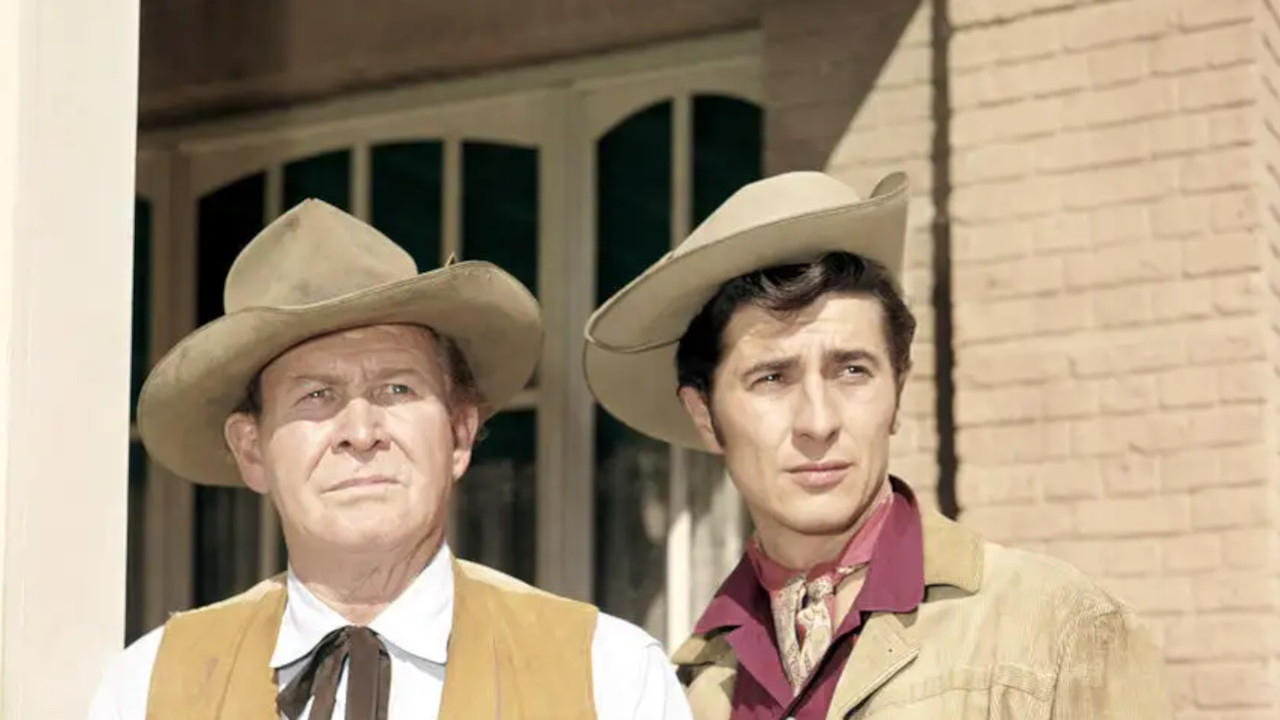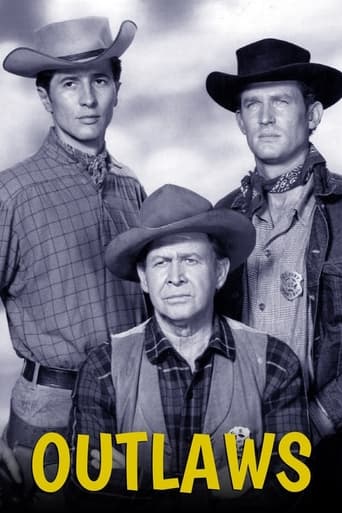

The earlier reviews jarred my memory because I had not noticed the emphasis on the outlaws' point of view. Of course, it was mentioned that the theme shifted to mainstream good guys vs bad. But, come to think of it, the shows I do remember spent an awful lot of time on the "bad guys." Thanks to the reviews, I understand why now.But irony is what I remember most. In one episode, an embezzling bank teller is blackmailed into helping rob the bank. He feels trapped because he invested in silver only to have it decline in value. As the show wraps up--he and the professional crook caught--a prospector waving a paper gleefully shouts "Silver's up!" The best shows were like that.
... View MoreI, too, remember The Outlaws from when I was a junior western buff back in the early '60s. It's wonderful to hear of it again and put it into the history of TV westerns. The theme was superb and the underrated Don Collier was a kind of earlier version of Sam Elliott. Both of them could have been genuine western stars if born in different times. As a poster says above, Don could have been a B-western actor, and if he'd been born a few years earlier, Sam could have appeared in some of John Ford's later westerns. Both men have something of the real west about them.I hear Don is still appearing at western conventions. I hope someone interviews him in depth before all he experienced in westerns small and large is forgotten for ever. Good on you, Don!
... View MorePerhaps the concept of telling the stories of the west from the bad guy's point of view had to wait until Law and Order Criminal Intent made its debut on NBC. Certainly nobody was as quirky as law enforcement official as Vincent Donofrio on The Outlaws.The Outlaws lasted for two seasons on NBC and it was set in Oklahoma Territory and it being a territory and not a state until 1906, it was a place where the outlaws roamed free, but for the presence of United States Marshals. Barton MacLane who in fact played mostly bad guys in his film career was the chief U.S. Marshal for the territory. He had two deputies Don Collier and Jock Gaynor. In the second season Collier was promoted to chief marshal as MacLane became territorial governor and Collier got Bruce Yarnell as a deputy. It didn't help, The Outlaws got canceled after two seasons.One thing the show did do was give Don Collier a long career in westerns. Take a look at that man's credits, I don't think you'll find three non-western films there. He was certainly a familiar presence in many a horse opera. Collier was probably born thirty years too late, he would have made a great B picture cowboy hero.I've often wondered though, did MacLane or Collier have a certain one eyed marshal named Rooster Cogburn working for them?
... View MoreHere's yet another of those westerns turned out in 1960 that tried to break the mold of the formulaic TV western genre, had only a mild recepetion during its first year, was then turned into a far more routine show during the second season, but still was cancelled at the end of that second year. Barton MacLane, a veteran of many old time westerns and other action films, played a tough U.S. Marshal tracking down outlaws in the badlands with the help of deputy Don Collier, a youngster then who would appear in many westerns. Sounds pretty familiar? Here was the difference - instead of telling the story from the lawmens' point of view, this was told as the outlaws saw it. That is, MacLane and his posse were always seen at a distance, almost as threatening characters. In one particularly memorable essay, James Coburn (youngster too at the time) played Culley, a confused young outlaw who wanted to go straight but didn't know what to do, who stops on his run from the law to help a blinded elderly man (Henry Hull, brilliant as always). The 'heroes' were on screen for maybe five minutes and you resented them when they arrested Coburn. For the second season, MacLane remained in the lead, they gave him a more conventionally handsome young deputy, and the stories were now told from his point of view - just like Lawman and pretty much every other western on TV at the time.
... View More